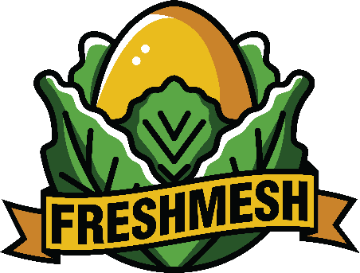
You won’t believe what this blog post is going to be about. Eggs—specifically, farm-fresh eggs.
You might think an egg is an egg, but oh no, my friend, not all eggs are created equal. Let’s crack open some facts (pun intended) and explore why farm-fresh eggs are simply better for you.
First off, let’s talk nutrient quality. The hens laying these farm-fresh beauties are often fed diets packed with natural goodness—probiotics, antioxidants like selenium or curcumin, and even fancy stuff like grape pomace flour (yes, grape pomace flour!). This means their eggs come out with higher antioxidant power, a much better fatty acid profile (hello, more healthy fats!), and a longer shelf life. In contrast, those store-bought eggs? Yeah, not quite up to the same standard. Studies have shown that eggs from hens fed with these enriched diets have significantly better nutritional profiles, thanks to higher antioxidant capacity, more unsaturated fats, and reduced lipid peroxidation, leading to fresher, healthier eggs compared to conventional options (João et al., 2019; Galli et al., 2018).
Now, speaking of freshness, farm-fresh eggs take the cake here, too. Thanks to special diets, like those enriched with selenium, farm eggs maintain their quality over time much better than their grocery store counterparts. They’ve got slower oxidation rates, which means they stay fresher longer, and their yolks and whites (or albumen, if you want to get fancy) keep a lower pH. Translation? Longer-lasting, fresher eggs that don’t degrade as quickly when stored. Research shows that these farm eggs have superior shelf life compared to store-bought eggs, maintaining freshness for a longer period due to slower oxidation and better stability in storage (Fašiangová & Bořilová, 2017).
But it’s not just about how long these eggs stay fresh—let’s talk oxidative stability. Eggs from farm hens who enjoy natural antioxidants in their diets don’t suffer the same harmful oxidation that standard commercial eggs do. It’s like the difference between a brand-new car and one that’s been sitting in the sun for years. Farm eggs retain their quality, while commercial eggs? Not so much. Studies highlight how these naturally fed hens produce eggs with reduced levels of harmful oxidation products, ensuring better quality and stability during storage (Muhammad et al., 2021).
And don’t even get me started on egg quality! Farm hens that are pampered with special diets lay eggs with bigger, more vibrant yolks and a better overall nutrient profile. That golden yolk color you love? It’s even richer in farm-fresh eggs. Research confirms that farm hens fed with probiotics, selenium, and other supplements produce eggs with higher yolk weight, deeper yolk color, and improved antioxidant profiles—features rarely found in eggs from industrialized farming (Carvalho et al., 2022). Plus, you’ll find that these farm-fresh beauties often contain more omega-3 fatty acids, along with higher levels of vitamins like E and D, giving you more health benefits per bite compared to conventional store-bought eggs (Surai & Sparks, 2001).
The bottom line? Farm-fresh eggs, especially from hens that are fed high-quality, enriched diets, deliver superior nutrition, better freshness, and greater oxidative stability than your standard supermarket eggs. So, next time you’re thinking about eggs, go farm-fresh.
Because you KNOW they’re better!
CITATIONS
· João, H. R., Gebert, R., Barreta, M., Boiago, M. M., Souza, C. F., Baldissera, M., Santos, I. D., Wagner, R., Laporta, L. V., Stefani, L. M., & Da Silva, A. S. (2019). Addition of grape pomace flour in the diet on laying hens in heat stress: Impacts on health and performance as well as the fatty acid profile and total antioxidant capacity in the egg. Journal of Thermal Biology, 80, 141-149.
· Galli, G., Da Silva, A. S., Biazus, A. H., Reis, J., Boiago, M. M., Topazio, J. P., Migliorini, M., Guarda, N., Moresco, R., Ourique, A., Santos, C. G., Lopes, L. S., & Stefani, L. M. (2018). Feed addition of curcumin to laying hens showed anticoccidial effect, and improved egg quality and animal health. Research in Veterinary Science, 118, 101-106.
· Fašiangová, M., & Bořilová, G. (2017). Impact of Se supplementation on the oxidation stability of eggs. World’s Poultry Science Journal, 73(2), 175-184.
· Muhammad, A., Mohamed, D. A., Chwen, L. T., Akit, H., & Samsudin, A. (2021). Effect of sodium selenite, selenium yeast, and bacterial enriched protein on chicken egg yolk color, antioxidant profiles, and oxidative stability. Foods, 10(4), 871.
· Carvalho, C. L., Andretta, I., Galli, G., Stefanello, T., Telesca Camargo, N. O., Marchiori, M., Melchior, R., & Kipper, M. (2022). Effects of dietary probiotic supplementation on egg quality during storage. Poultry.
· Surai, P. F., & Sparks, N. (2001). Designer eggs: From improvement of egg composition to functional food. Trends in Food Science & Technology, 12(1), 7-16.

